Special World Olympics Games to be held for the first time in the Middle East and North Africa (MENA) region in Abu Dhabi from March 14 – 21, 2019; it will be the world’s largest humanitarian and sporting event of 2019. Nearly 7,000 athletes and 3,000 coaches, representing 177 countries, will compete in 24 Olympic-style sports at venues throughout Abu Dhabi.
Under the Patronage of His Highness Sheikh Mohamed Bin Zayed, the Crown Prince of Abu Dhabi, The Capital City of the UAE will be the host of both 2018 Special Olympics 9th MENA games and the World Summer Games celebrating the golden jubilee of Special Olympics (SO) movement.
“Sports is the outlet for people with intellectual disabilities to integrate in society,” said President and Managing Director of the Middle East and North Africa Region of Special Olympics Ayman Abdel Wahab.
On this occasion, Egyptian Streets met Ayman Abdel Wahab, SO MENA Regional President & Managing Director.
What are the differences between the International Olympic Committees worldwide?
There are three types of the Olympic Committees: International Olympic Committee (IOC), International Paralympic Committee (IPC), and Special Olympics International (SOI).
The IOC organizes competitions for athletes without disabilities known as Olympic Games. IPC is for people with an impairment or physical disabilities, while Special Olympics is in charge of athletes with intellectual disabilities and is the only organization authorized by the International Olympic Committee to use the word “Olympics” worldwide. Unlike the Paralympic Games, Special Olympics World Games are not held in the same year or in conjunction with the Olympic Games.
What is the scope of the Special Olympics International?
Recognized by the International Olympic Committee (IOC), Special Olympics is a global inclusion movement using sports, health, education and leadership programs every day around the world to empower people with intellectual disabilities to become accepted and valued members of their communities.
According to the World Health Organization (WHO), around 200 million persons have intellectual disabilities worldwide, approximately 3 percent of the global population. In this regard, I would like to highlight a fact that people with disabilities have the right to be fully included, welcomed in the community and join others to learn, work, play and get better health care. Our urgent mission is achieving social inclusion through the power of sport to explore more opportunities, break down barriers and misperceptions and become a common ground to unite people from all walks of life.
Special Olympics helps people with ID find joy, acceptance and success. Sports proved to be their resort through which they feel empowered, gain self-confidence, become the center of attention, and their energy is positively absorbed.
Can you give us a brief about the Special Olympics International?
It all started 50 years ago from a woman who loved sports and was fiercely committed to social change. Sister of President Johan Kennedy, Eunice Kennedy Shriver (EKS) was inspired by her sister, Rosemary Kennedy, who had an intellectual disability (ID), a stigma back then. She and Rosemary developed a close bond and grew up playing sports together and EKS recognized the special talents of her sister. However, in those days (In the early 1960s), people with ID were ignored, isolated and there were limited options for someone like Rosemary.
In June 1963, Mrs. Shriver began a backyard summer camp for children and adults with intellectual disabilities at her home in Maryland to explore their capabilities in a variety of sports, physical and recreational activities. This was an extraordinary idea at the time as many experts believe that people with ID should be excluded from physical activity for fear that they might injure themselves, as many were overweight or obese.
In July 1968, The First International Special Olympics Summer Games was held at Soldier Field in Chicago, where 1000 athletes with intellectual disabilities from 26 US states and Canada competed in track and field.
In 1988, she won the recognition of the International Olympic Committee. Thanks to this story as the empty stadium turned to be a movement for everyone. Special Olympics has evolved and reached 5.7 million athletes, including more than 726,000 Unified partners in 172 countries and we offer 32 Olympic type sports.
This is the first time for the Special Olympics World Games to be celebrated in a MENA region country. Can you tell us about this prestigious achievement?
Abu Dhabi was selected to be the host of the 2019 World Summer games based on a comprehensive bid proposal, a site visit by the board committee, and the country’s vision to create inclusion for people with intellectual disabilities. The World Games are the flagship event for Special Olympics.
The vision to host the World Games in the MENA region started several years ago and we were focused to make it happen. The UAE is close to Asia, the Middle East and North African countries, so the Games are expected to have a very broad participation.
As we are celebrating 50 years of Special Olympics, there is an explosion of a new vision of the leadership within the MENA region driven by HH Sheikh Mohammed bin Zayed.
Abu Dhabi hosting the 2019 Special Olympics World Games and the 9th 2018 Special Olympics MENA Regional Games also serving as the Test Games are major opportunities for revolutionizing the role of Special Olympics globally and throughout the region. This is a great chance for all of us in MENA to understand and dedicate ourselves more to values that many of us share with Special Olympics; inclusion, tolerance, acceptance and combating injustice. We will be forging more harmonious relationships with countries leaders and governments. We will play a catalytic role in bringing together the leaders of tomorrow in support of a better world.
About SO MENA Regional President & Managing Director Ayman Abdel Wahab
He was born in Cairo in 1965 and he earned his undergraduate degree from Cairo University, Faculty of Engineering, Telecommunications & Electronics Department in 1988. He started his career path in Egypt’s and multinational’s leading business and telecommunications corporations.
In 1997, he was elected as a board member at Misr Languages Schools. That is when he was introduced to the world of intellectual disabilities and Special Olympics then he started sharing the joy of serving the athletes. A pioneer in his role as a volunteer who contributed to the success of the SO Egypt program, he was nominated by SO Egypt Board of Directors to take over as SO Egypt’s National Director in August 1998.
When Ayman joined SO Egypt, the number of athletes was 2240. With a vision and determination to reach as many athletes as possible, together with his dedicated SO Egypt team, they increased the number of athletes to 15,000 in just two years.
In 1999, in his capacity as SO Egypt National Director, the first regional games were held in 1999 in Egypt with the participation of 210 athletes.
In appreciation of his dedication and achievements with the Egyptian program, SOI chose Abdel Wahab to lead the MENA region as the Regional President & Managing Director, in December 2000. In May 2001, the SO MENA Regional Head Office was inaugurated in Cairo along with the First Leadership Conference in the Field of Intellectual Disabilities Care. He has helped transform Special Olympics in the MENA region into a movement that focuses on acceptance, inclusion, and respect for individuals with intellectual disabilities.
Under his leadership, the number of registered athletes has increased from 20,433 in 2000 to nearly 160,000 in 2016 despite ongoing turmoil in the region.
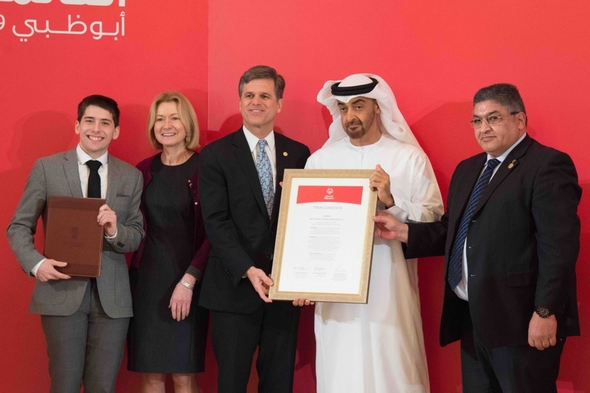
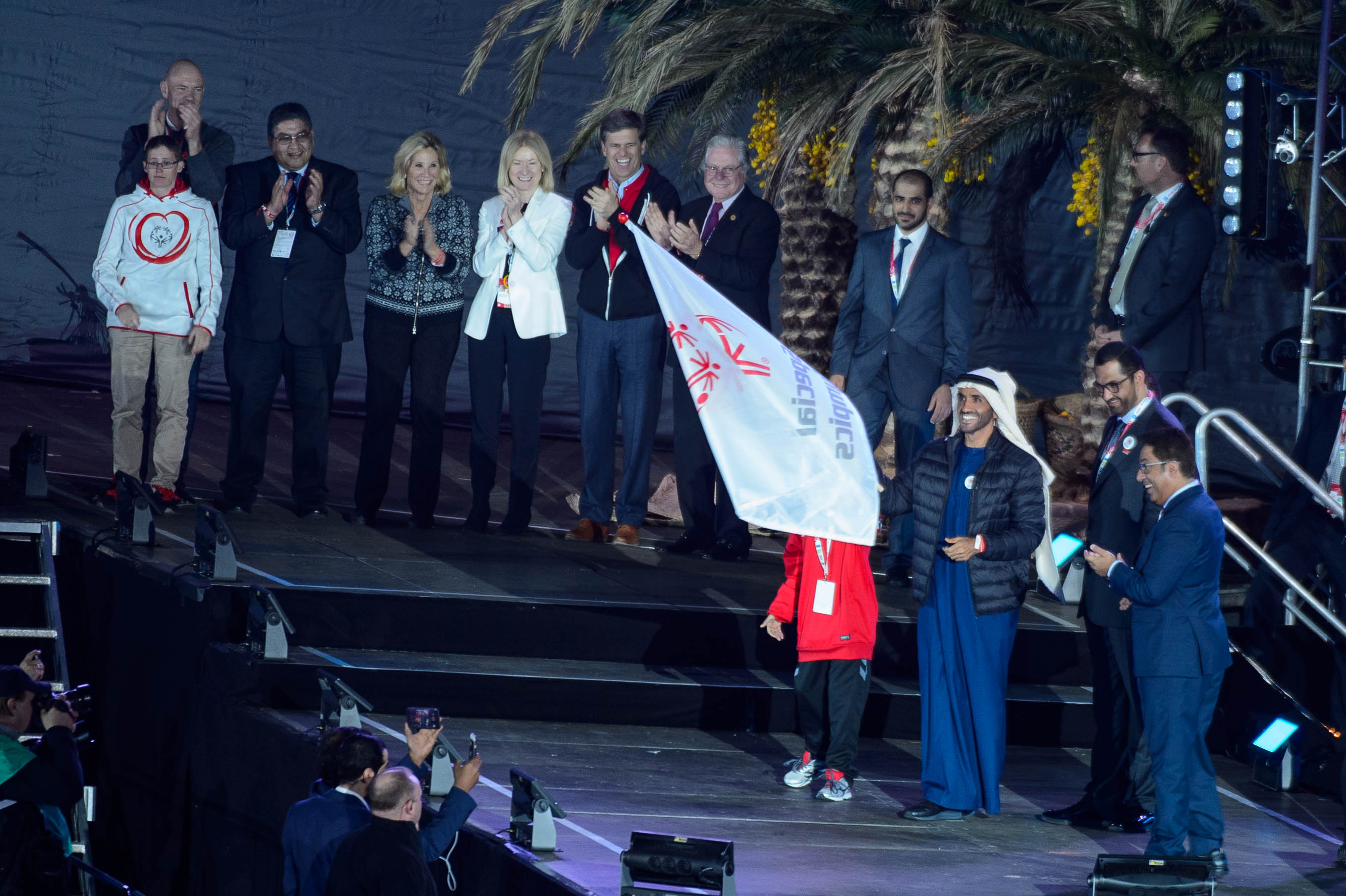



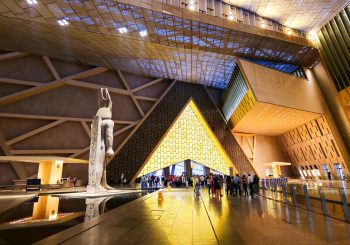
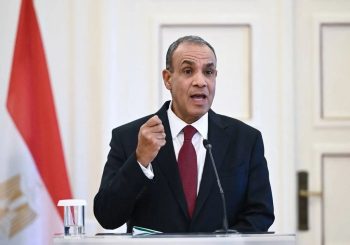
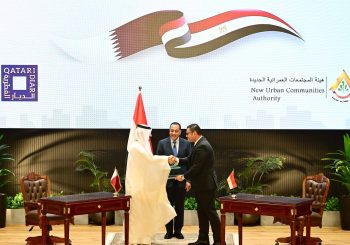
Comments (0)